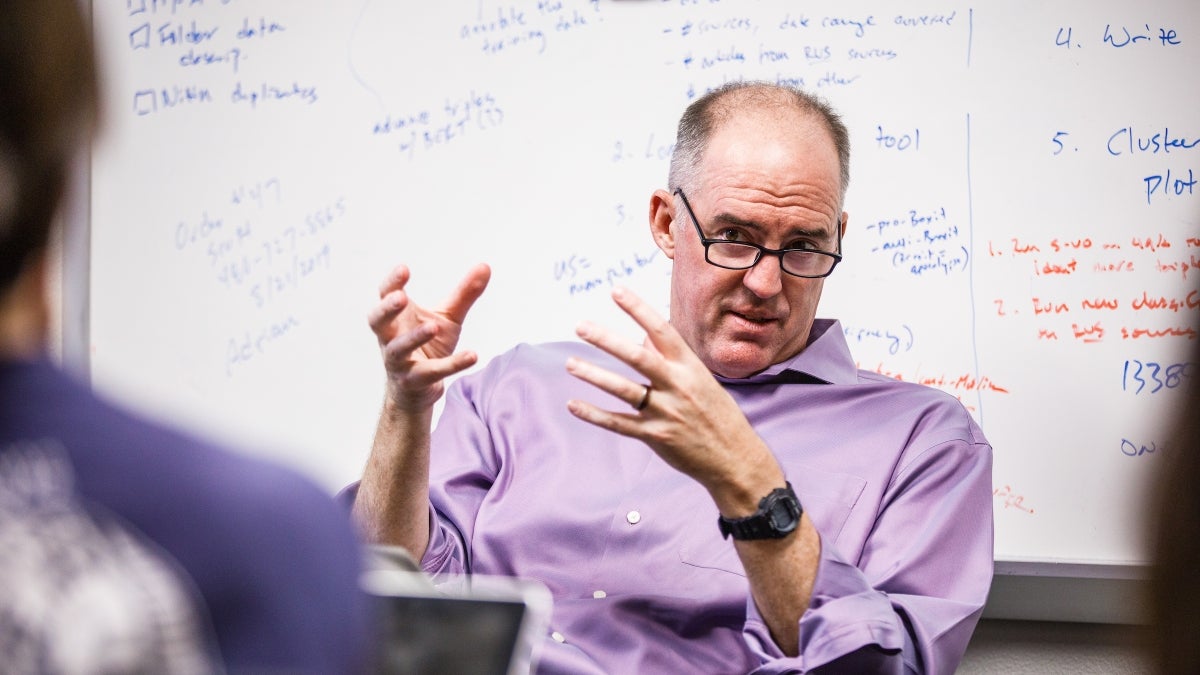There's an insidious threat that seeks to divide the nation and undermine our faith in democracy — disinformation. Often called fake news today, disinformation is the spread of false information with the willful intent to deceive.
Scott Ruston, a research scientist with the Global Security Initiative at Arizona State University, studies why disinformation is believable and how it spreads. In the latest ASU KEDtalk here, he offers tips on how to identify and defend yourself against fake news.
Video by Knowledge Enterprise
Ruston's talk is part of the ASU KEDtalks series. Short for Knowledge Enterprise Development talks, KEDtalks aim to spark ideas, indulge curiosity and inspire action by highlighting ASU scientists, humanists, social scientists and artists who are driven to find solutions to the universe’s grandest challenges.
Tune in to research.asu.edu/kedtalks to discover how researchers are attacking locust plagues, why baby steps are not the best way to achieve change and more.
Top photo by Andy DeLisle/ASU
More Law, journalism and politics

Annual John P. Frank Memorial Lecture enters its 26th year
Dahlia Lithwick, an MSNBC analyst and senior legal correspondent at Slate, is the featured speaker at the School of Social Transformation’s 26th annual John P. Frank Memorial Lecture on…

The politics behind picking a romantic partner
A new study reveals the role that politics play when picking out a romantic partner — particularly for older adults.“Findings show that politics are highly salient in partner selection across gender…

Tips to make tax season less taxing
When it comes to highly unpleasant experiences, filing taxes is probably up there with root canals — which is why people put off doing them. But tax season is here, and in an effort to alleviate…
